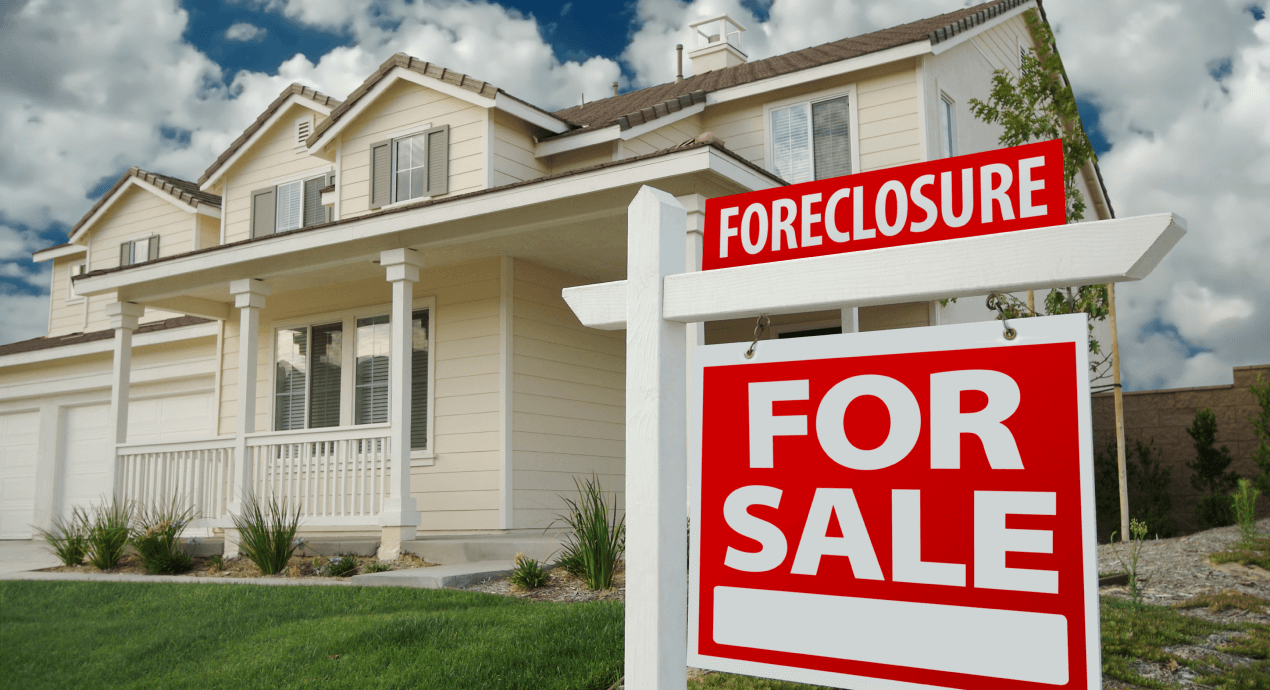
Contemplating coverage?
Subscribe to receive our emails & get
$200 OFF!
Have questions?
Call us: (833) 544-8273


Written By Rachel Cherem
A foreclosure sale can present a financial opportunity, given the right conditions. Here's a closer look at the potential benefits of buying foreclosed homes:

Give buyers and sellers the best protection
at great prices!
There are a few types of foreclosure sales. The specifics of the sale process can depend on who the seller is, the nature of the property, and other conditions, but foreclosures can usually be sorted into the categories outlined below.
A property is in preforeclosure when the homeowner has already defaulted on their mortgage but the lender has not yet initiated foreclosure proceedings. The homeowner is typically motivated to sell in order to pay back the lender and avoid the financial ramifications of foreclosure. Preforeclosure sales sometimes result in a short sale, which is when the home is sold for less than the balance on the mortgage. Homebuyers who successfully negotiate a short sale can acquire a property for well below market value, but short sales require the lender's approval.
Once a property is in foreclosure, one way in which it may be sold is at public auction. The lender is typically disallowed from turning a profit at a foreclosure auction, but bidding may start below the amount of the outstanding mortgage balance to entice bidders. If the property sells for beyond the price of the mortgage balance, surplus funds may go to the former homeowner.
Foreclosure auctions may invite more risk. Home inspections aren't always permitted, so bidders may have little idea of the condition of the property. Also, auctions often require cash payments, so bidders must have ready access to substantial liquid funds to make a purchase.
If a property doesn't sell at a foreclosure auction, the mortgage lender can list the home for sale via traditional means. This is referred to as a bank-owned or real estate owned (REO) property.
In some cases, federal agencies or administrations, such as the VA, FHA, or USDA, insure home mortgages. If a homeowner with a government-backed mortgage defaults, the government pays off the lender and repossesses the property. The government can then resell the home to qualified buyers.
With some real estate savvy and a bit of luck, investors in foreclosed properties may find themselves in an advantageous financial position. But risks and challenges abound. Here are the pros and cons of buying foreclosed properties.
Depending on the circumstances, a foreclosure sale can be a roll of the dice. A seasoned real estate investor with deep pockets may be comfortable with that, but first-time homebuyers should proceed with caution.
If you're interested in purchasing a foreclosed property but need help in navigating the process or mitigating the risks, you can connect with a real estate professional who specializes in foreclosure sales. An experience realtor can:
Manage your client base and home warranty information
with our Real Estate Portal:
Foreclosures are not necessarily cheaper. They are often priced lower than comparable properties in the area, but buying a property “as is” leaves you vulnerable to hidden costs. Unpaid taxes, liens, or necessary renovations or repairs could quickly erase any savings you earn from the sale price.
Foreclosures may be eligible for regular mortgages, but it depends on the nature of the sale. REO or government-owned sales, for example, may allow for a mortgage, but an auctioned property may require a full cash payment upfront.
You can find some foreclosures listed on standard MLS platforms (think Zillow, Redfin, etc.). The U.S. Department of Housing and Urban Development maintains the HUD Homestore, which can be a good resource for government-owned homes. Fannie Mae, Freddie Mac, and the USDA and VAmay also list homes.
You can also peruse foreclosure-specific listing services or look for public auction notices in your local government offices or on social media.
Buying a home at auction can be risky. A thorough inspection and review of public disclosures regarding a home’s condition should be items on every homebuyer’s checklist, but you may not have the opportunity to adequately evaluate a property that is selling at auction. As a result, you run the risk of buying a money pit.
Depending on the type of sale, you may be able to inspect a foreclosed property before closing. REO sales and government-owned sales, for example, often allow for inspections. At an auction, however, inspections may be disallowed, or there simply may not be time for one.
Expenses following the purchase of a foreclosed home could include structural repairs and renovations, appliance repairs and replacements, back taxes or liens that the previous homeowner did not pay, and typical real estate closing costs.
You may be able to mitigate some expenses if you purchase a home warranty at closing. Liberty Home Guard’s comprehensive protection could keep you from paying out of pocket if an essential home appliance or system breaks down. Learn more by calling (833)-543-9576.
Stay Ahead of Potential
Home Mishaps!
Subscribe to our Liberty Home Guard Newsletter and gain access to exclusive content that ensures your peace of mind.